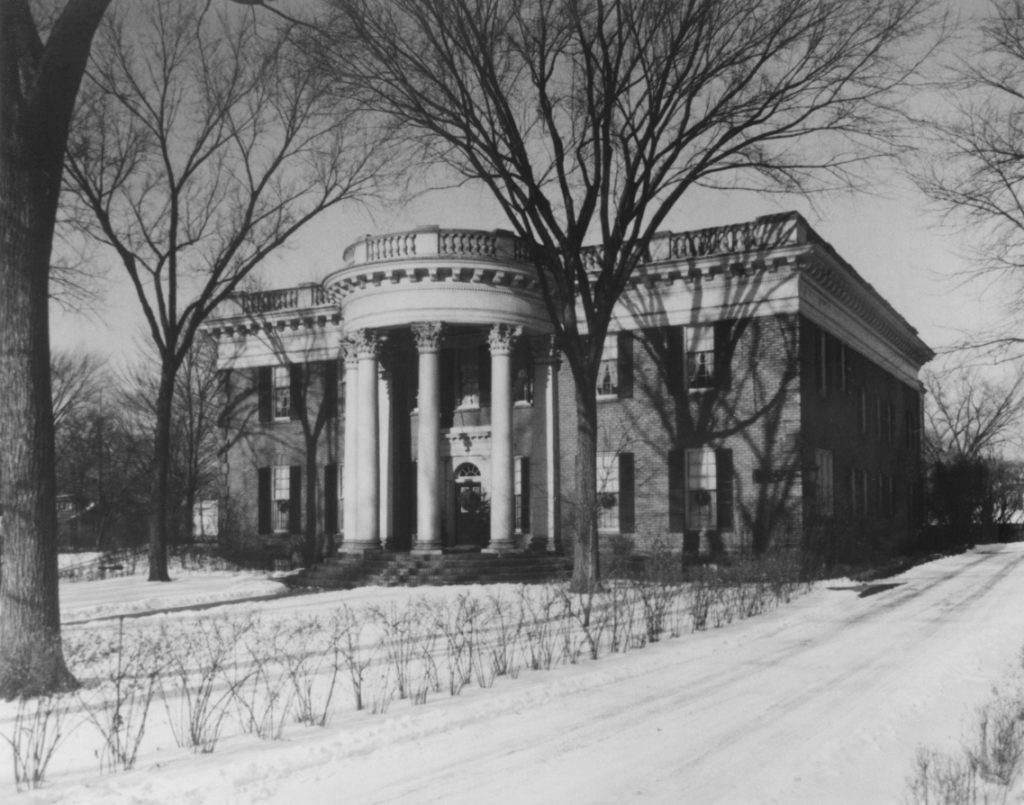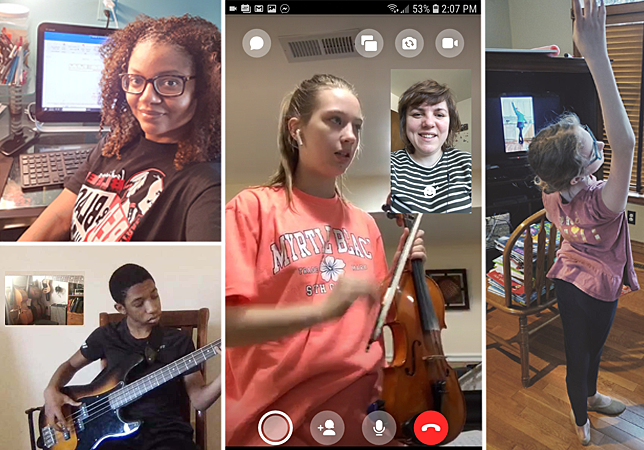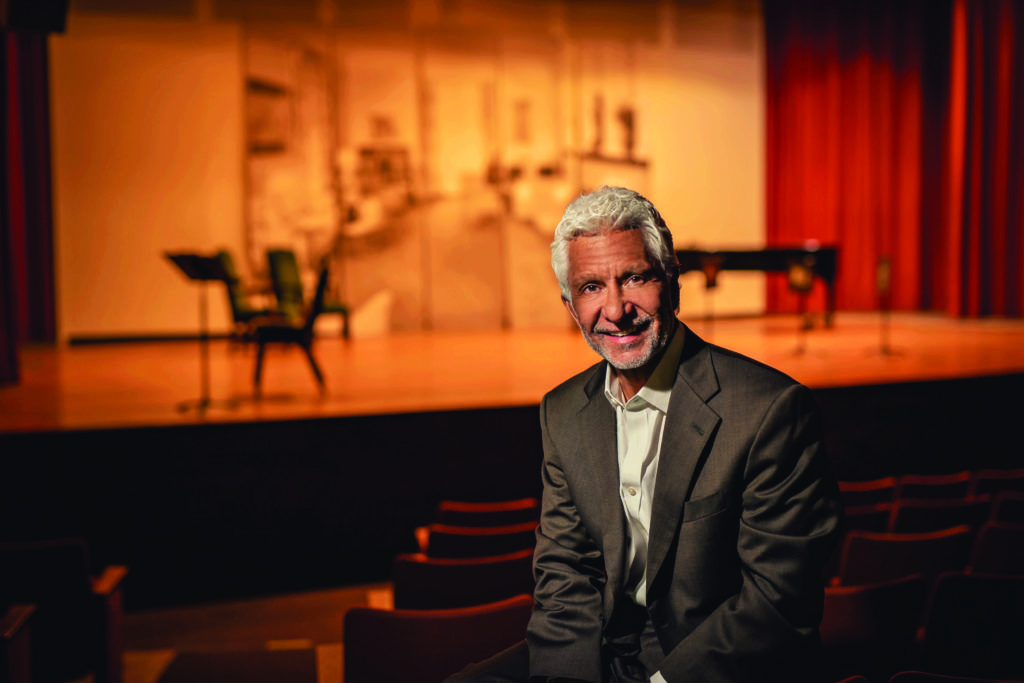By Rodney Lontine
Arts and culture offer much-needed healing in difficult times
The Community Music Association was founded by J. Dallas Dort during World War I in 1917. Both J. Dallas and his wife Nellie were accomplished musicians. He played the cello, and their Kearsley Street home in Flint was fitted with an Aeolian pipe organ he liked to play for guests. Though difficult to confirm, it’s likely the Dorts’ efforts to also maintain arts and cultural programs during the Spanish Flu pandemic of 1918 made a difference in people’s mental – and perhaps physical – well-being.

The J. Dallas Dort family home on Kearsley Street, early 20th century (photo courtesy FIM from Kettering University historical archives)
We all know the challenging situation we’re in right now. Our normal forms of socializing are mostly restricted. Mental health is becoming a concern for all ages as people feel closed in, helpless and uncertain. This is why staying connected to arts and culture is so very important, perhaps more so than at any other time in most of our lives.
Americans for the Arts published Americans Speak Out About the Arts in 2018, the largest public opinion survey of the arts ever conducted. These are some of the findings:
- 72 percent of Americans believe “the arts unify our communities regardless of age, race and ethnicity.”
- 69 percent believe the arts “lift me up beyond everyday experiences.”
- 81 percent say the arts are a “positive experience in a troubled world.”
Whether you’re new to the world of arts and culture or not, checking out an arts organization online during your time at home means you’ll likely find something that will make you smile, laugh, cry or applaud. You may also find healing in listening to music or watching a recorded performance.
The Flint Institute of Music is a thriving performing arts organization providing music, dance and theatre for all ages and abilities, and attracting students, patrons, instructors and performers from across the USA.

Tracing its roots back more than 100 years, the former Community Music Association today reaches more than 300,000 people annually through classes, outreach programs and performances through its three program areas: the Flint School of Performing Arts, Flint Symphony Orchestra and Flint Repertory Theatre (The Rep). Together we are dedicated to improving the community through arts programming that is available for all.
While we are closed in compliance with Governor Whitmer’s order to keep everyone safe and curb the spread of COVID-19, we’re using social media to offer remote learning, performances by our students and faculty, and activities for the family. Our students are learning in virtual classrooms.

A collage of FIM students and staff are finding ways to keep their music going through the coronavirus challenge: Counterclockwise from top left: Tomika Greenard, FSPA Administrator; Derrin Stitch, bass student; Sydney Dryer, viola student; Kathryn Belill, dance student (screen shots provided by the FIM)
Perhaps the most tangible example of being able to use arts and culture to help our community through this pandemic is a program by The Flint Repertory Theatre. The Rep is using video conferences with students sixth grade through college to create new scenes and monologues about their experiences as a way to express their thoughts, feelings and stories of this time in history.
When we transition back to “normal” – which I believe will be redefined – embracing arts and culture will help us all heal.
A 2019 study by Americans for the Arts says it best:
“We are better people with the arts in our lives. We are healthier, creative and actively engaged citizens who feel better about today and more optimistic about tomorrow. They unify us and help us understand other cultures—benefits that persist even in difficult social and economic times.”
And that will make all the difference.
Rodney Lontine is president and CEO of the Flint Institute of Music.

Rodney Lontine (photo credit: Jenny Lane Studio)


You must be logged in to post a comment.